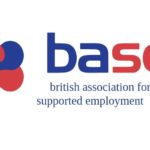Recent ONS data releases have shown a worrying upward trend in labour market participation among our young people.
There are currently 3 million young people who are economically inactive, nearing the highest level since 1992 with 1 in 8 young people likely to be unemployed. In fact, young people are three times as likely to be out of work than people of other ages.
We hear at length in our Youth Voice Census that young people want to work, they are committed and hardworking, with skills, experiences and perspectives that can add value to the business community. In order to be able to move into good quality employment young people need to explore the world of work by having conversations with employers, taster days, work experience and mentoring (to name just a few) to build specific knowledge and confidence about the world of work and how to navigate it.
Too often we hear employers talking about skills gaps and that young people are not ready with the right skills and behaviours for work. But these skills are impossible to acquire without early experiences of work with employers, either through a range of school/college based experiences such as career talks, taster days and work experience or through access to early career roles which recognise the importance of building in that learning.
But it is also true that it is a difficult landscape for employers to navigate. With competing demands for time and resources, to fulfil companywide strategies such as ESG, EDI and immediate skills needs, there is not always the time or knowledge to know where to start with early careers, or to evaluate what is truly working and for which types of young people and where.
To offer clarity and provide valuable support, we’ve created the Good Youth Employment Benchmark, a first of its kind digital tool. This Benchmark allows employers to assess and track their current employment practices across various activities, including school programmes, work experiences, and different employment opportunities such as apprenticeships, graduate roles, supported internships, and entry-level positions. By utilising this benchmark, employers can gain insights into what’s working well and identify areas for improvement particularly for those young people with protected characteristics.
It will support employers to access the information, advice and guidance they need to grow the quality of their early talent interactions and programmes, particularly for young people from disadvantaged backgrounds. The Benchmark will benefit employers by:
- Providing guided space that will help them review and reflect on their current practice
- Support employers to build on youth employment best practice
- Gain access to a wide range of tailored content and resources that will support strategic priorities
- Employers will build a wider evidence base of good youth employment practice, providing crucial data to enable further support and potential system change in the future.
Become a Member. Complete the Benchmark.
Access to the Benchmark is available through Youth Employment UK Membership. It opened on 29th May and will be open for 3 months (until 29th August 2024). Employers will receive a bespoke report, highlighting areas of good practice and practices that could be improved. To support this, employers will receive tailored content based on their needs.
The Benchmark is key in unlocking quality opportunities for young people.
Become a Member




